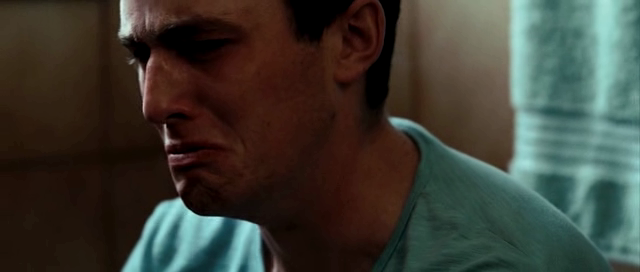HOME
This is the blog of Ian Rosales Casocot. Filipino writer. Sometime academic. Former backpacker. Twink bait. Hamster lover.
Interested in What I Create?
Bibliography

The Great Little Hunter
Pinspired Philippines, 2022

The Boy The Girl
The Rat The Rabbit
and the Last Magic Days
Chapbook, 2018

Republic of Carnage:
Three Horror Stories
For the Way We Live Now
Chapbook, 2018

Bamboo Girls:
Stories and Poems
From a Forgotten Life
Ateneo de Naga University Press, 2018

Don't Tell Anyone:
Literary Smut
With Shakira Andrea Sison
Pride Press / Anvil Publishing, 2017

Cupful of Anger,
Bottle Full of Smoke:
The Stories of
Jose V. Montebon Jr.
Silliman Writers Series, 2017

First Sight of Snow
and Other Stories
Encounters Chapbook Series
Et Al Books, 2014

Celebration: An Anthology to Commemorate the 50th Anniversary of the Silliman University National Writers Workshop
Sands and Coral, 2011-2013
Silliman University, 2013

Handulantaw: Celebrating 50 Years of Culture and the Arts in Silliman
Tao Foundation and Silliman University Cultural Affairs Committee, 2013

Inday Goes About Her Day
Locsin Books, 2012

Beautiful Accidents: Stories
University of the Philippines Press, 2011

Heartbreak & Magic: Stories of Fantasy and Horror
Anvil, 2011

Old Movies and Other Stories
National Commission for Culture
and the Arts, 2006

FutureShock Prose: An Anthology of Young Writers and New Literatures
Sands and Coral, 2003
Nominated for Best Anthology
2004 National Book Awards
Follow the Spy
Recent Crumbs
Blogs I Read
© 2002-2021
IAN ROSALES CASOCOT
Saturday, May 28, 2011

There is a reason why I've chosen the snapshot above from David Michôd's
Animal Kingdom [2010], the brilliant crime film from Australia that caused much chatter in last year's cinematic bumper crop. (It won Jackie Weaver, who plays evil matriarch Smurf Cody here with such uncanny sweetness, a Best Supporting Actress nomination at the Oscars. I now understand completely the acclaim: this film had me gripping my seat from the unrelenting tension of its unspooling, that even a sequence of a car slowly backing out of a doorway seemed the stuff of utter terror.) This is J Cody [played with virtuoso command by James Frencheville], and he has just discovered something terrible and bloody. In this scene -- set in the toilet of his girlfriend's parents' house -- we witness a breakdown and a transformation: he turns from being the naive teenage boy we have come to know him for most of the film, to a young man suddenly coming to terms with his dawning realization of an encounter with evil. He has been the innocent in this portrait of a family steeped in crime, so innocent in fact that when the film opens we find him nonchalantly watching television, his mother's dead body (from a drug overdose) beside him on the sofa. Alone in the word, he is taken to live with his estranged grandmother Smurf, and he gets re-introduced to his uncles -- all of them criminals with psychopathic tendencies, with the police in the city they live in scrambling to gather evidence to put them away. The film is his story -- and the story is about his loss of innocence. I am not going to say much more about how this film goes, but it is an elegant exercise of film form. There is no needless moment in this gripping narrative; everything is essential. The cinematography by Adam Arkapaw is deliberate in its beautifully rendered tracking shots and mise-en-scene, which reminds of a predatory point-of-view. The music by Antony Partos intensifies the action and the emotional turmoil of its characters with a stalking intensity. But it is the actors who make this devastating. They are the proverbial animals in this murderous kingdom -- all preys and predators in this game where the roles are sometimes interchanged. There are good guys, too, but this is basically an anatomy of evil people. Frencheville has the tricky role here: J's naivete could have been been cloying, and a less-gifted actor would have collapsed from the sheer madness of having to tread the fine line between innocence and a wearying nose-dive to hardness. But he gets the balance right, and there are little dramas constantly erupting on Frencheville's face that assure us he has this character down pat. And then there is Weaver: her Smurf Cody is probably the most evil character I have encountered of late in film, but she embodies it with strange rightness that rivals the intensity of a Meryl Streep or a Tilda Swinton. Hers is a role of utter complexity: nurturing and caring (in a Freudian way that's quite disturbing), the way a lioness can be with her pups -- while underneath lies a dark intelligence that has no qualms with intimations of murder. She makes a kind of Sophie's choice here that shocks -- but the way she still goes on with all sweetness and light and huggable motherliness also shocks us into a recognition that in life evil disguises itself in the mundane. When the devastating ending comes, we realize it is the only way to end a film such as this. It made me cry. It made me weep for how we can be robbed of such things as humanity.
Labels: crime, film
[0] This is Where You Bite the Sandwich
GO TO OLDER POSTS
GO TO NEWER POSTS

















 3:25 AM |
Evil People
3:25 AM |
Evil People
